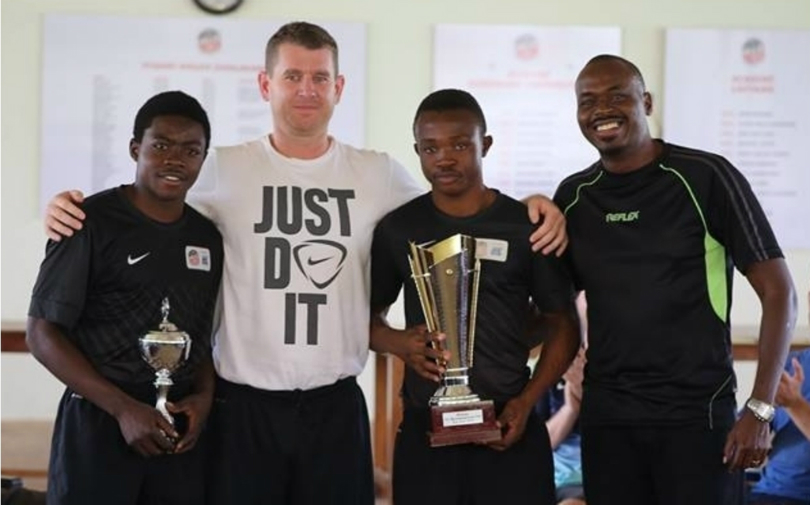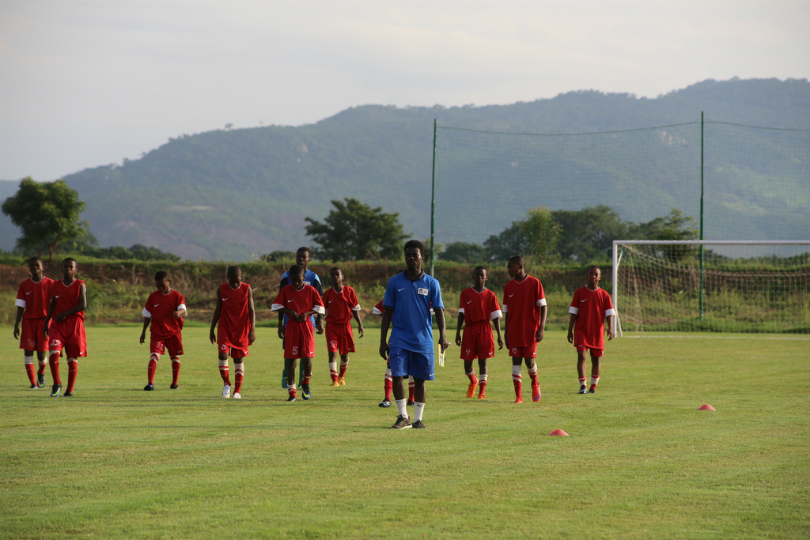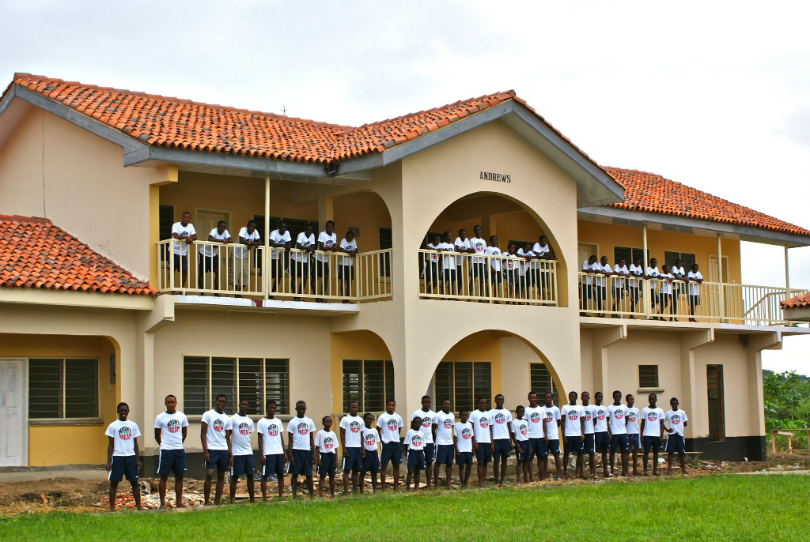Why FC Nordsjaelland hired a character coach
FC Nordsjaelland owner Tom Vernon appointed a head of character development to improve the resilience of the club's young players - we ask him why

Why have you appointed a head of character development at FC Nordsjaelland?
I set up a football academy in Ghana 16 years ago called Right To Dream and we were looking at the quality of the players. There was great quality but often a lack of character. We had players with huge quality who just didn’t push on and we wondered why that was. People weren’t really looking at building character and we thought it would be a huge advantage if we did that. We appointed a head of character development and setup an eight-year curriculum at academy level. From the age of 10 you go through a systematic plan that explores all areas of character that can help you perform better as a player. We’d do that in a practical setting. We’ve been doing it for a number of years in Ghana. At Denmark the first thing we’ve done is introduce it to the academy here.
Is the current academy system in Europe failing players?
I think so. When you look at the environments, they’re provided with everything. I don’t know if that’s a good thing. It doesn’t inspire you to chase something. Cleaning the boot room or washing a senior pros boots is character building. Players don’t do that anymore and that was a good way of keeping players grounded and shaping character. Now clubs are giving players everything to attract them to their club because there’s so much competition for players. The boot room isn’t going to work anymore but teaching players character and exposing them to environments that are uncomfortable is still really important. Clubs have lost that a little bit.
How do you get them out of their comfort zone?
One of the great things we’ve done is to take them to Ghana from the age of 13. They go to a third world environment and see how lucky they are to come from Denmark. They see how to operate and survive in a third world environment. Seeing what you get given as a kid in a third world country compared to in a western football society is also important. Another thing we do is, every team has a giveback project. The kids design this themselves. Kids go and work with homeless children in Copenhagen and work with tough projects to help them stay in touch with reality. They realise what a privileged position they’re in and how to use their position as a footballer to do something good.

Are kids from poor backgrounds tougher mentally?
Not as much as you think. It has to be developed from wherever you’re from. An African player coming to Europe may sit back and be satisfied with his first pay packet. Earning £30 or 40k a year and it’s like a fortune to him. You need to channel their experiences. We’ve got a centre forward in our first team who’s the top goalscorer in the Danish League and he’s got unbelievable resilience and character despite coming from a good background. Wherever you’re from it’s something you have to work on.
Is there a genetic component to this?
Really it’s no different to anything else for us. We develop the technique of our players – some are better technically and physically and we work on that, and we do the same with character. Some of them have that fire in their belly from a young age and that’s noticeable. But players who are talented and don’t have that, we’ve developed a programme that develops that as much as the physical and technical attributes. The big experiment is can it be developed within our academies?
Have you seen any transfer on to the pitch?
At youth level, Right To Dream is one of the most respected academies in the world. They’ve won some of the major youth tournaments in the world over the last few years. They’ve won the Milk Cup the last couple of years they’re the world champions of the Nike Premier Cup – the elite under-15 tournament in world football. They’ve won the Gothya Cup in the last two years. They’ve beaten a lot of the top academies. We think an element of the level of performance is the collective character of the group we’ve developed. When we look at the results of the teams at youth team level – we think we’re seeing that transfer. We think we ask our players to dig deeper on the back of the education we’ve given them. When they face adversity they don’t quit and complain. They keep pushing. We’ve still got kids who are character challenges for us but we’re seeing results. In Denmark, it’s still early days. It’s long-term thinking for us. We don’t expect to see any short-term results. It’s part of their education.

How important is it to educate the coaches?
We have some core literature, which we set our curriculum around. Mindset by Carol Dweck is really important for us and Chimp Paradox is another one. We base a lot of our work around that. Our coaches attend book clubs around our head of character development. We go through this and make it football specific and football relevant for them. We have 70 books, which form the basis of the curriculum. We don’t want our head of character development to be in front of the players that much. We want the coaches to be educated to do this. We have coaches who have done this for 10 years in Ghana. We’ve seen some really good responses from coaches who understand they’re being let down because their players don’t dig deep enough. You have to give each coach the license to tailor it to the way he wants to deliver it but give him the framework to deliver that.
Get FourFourTwo Newsletter
The best features, fun and footballing quizzes, straight to your inbox every week.
How did you scout resilience as a scout?
I think you can see players with a strong match personality and character. That goes back to our point – it was natural in certain players and we were asking the question can we put it into all of our players. It’s something you’re looking for in all the players. They have to have four of the five characteristics to be a top player. Now for us it’s trying to put it into all of them.
Did England’s failure at Euro 2016 endorse what you’re doing?
I listened to Phil Neville’s podcast on character and the need for improved character. The former Everton assistant, Steve Round, he gave a similar comment talking about the importance of this. It comes back to what we’re doing with taking our kids into uncomfortable environments from a young age and getting them to perform. You have to ask Premier League academies – are they putting kids into uncomfortable environments to perform so they’re resilient enough when they’re exposed on the pitch at international level or other challenging situations? Kids are too wrapped up in cotton wool. They’re not exposed enough to challenging environments. We’ve invited other PL clubs to Ghana and they’ve said ‘it’d never get past our health and safety checks to let the kids come down’. In Denmark, the kids are having unbelievable experiences going to Africa and reaping the benefits. I remember Manchester United used to send their kids to Kenya every year and I remember the coaches saying they learnt more about their players when they took them into that environment than they did seeing them anywhere else. That experiential learning is fantastic and the budget at elite clubs are so big, why not take them to eastern Europe, South America, Africa, and make it a little bit more uncomfortable? Give kids the chance to grow and reflect on it. If the kids struggle, don’t write them off; give them a strategy to help them do better at it next time.
Is there a closed mindset within English football?
In Ghana, our academy was a blank canvas. It’s a little bit more open. The parents and the kids have had great buy-in in terms of getting these different world experiences. I think the Premier League could learn a lot from that. We’re starting to see this with the national team. There’s such a great blank canvas to create a more holistic educational experience that will bear fruit on the pitch rather than it all being about sports science and the technical side of the game.
